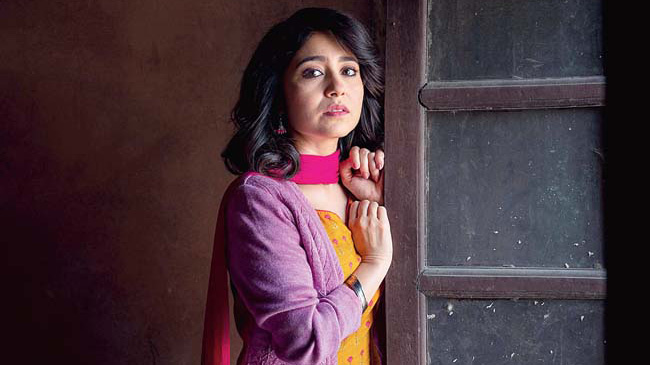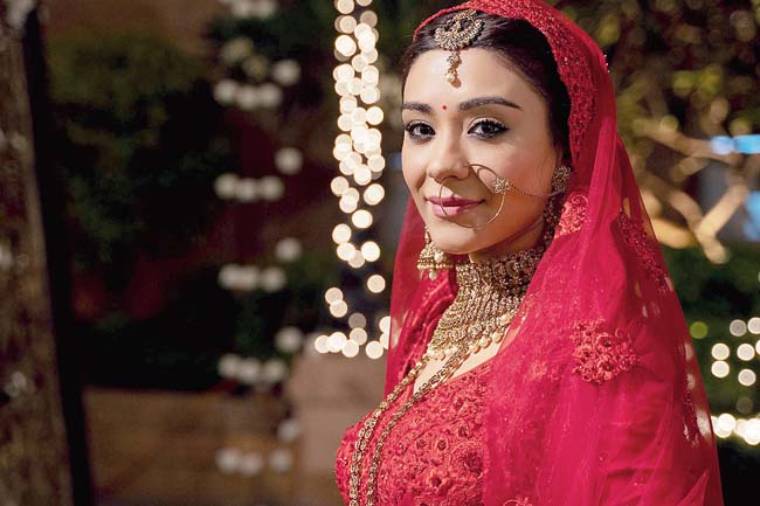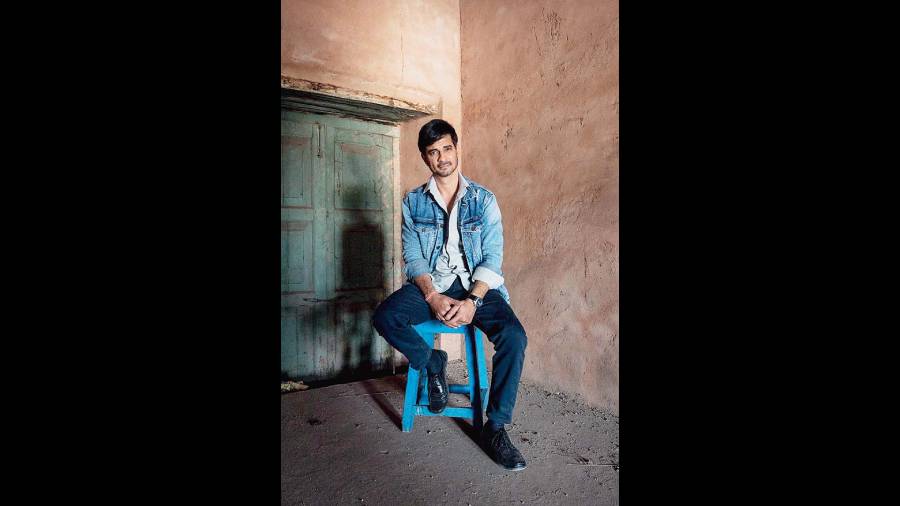Adark, twisted thriller beams on our screens this weekend. Yeh Kaali Kaali Ankhein, an eight-episode series which focuses on love, obsession, power play, revenge and redemption, stars Tahir Raj Bhasin in the lead, along with Shweta Tripathi Sharma and Anchal Singh. Before the show — boasting a powerful ensemble, including Saurabh Shukla, Arunoday Singh and Brijendra Kala — drops on Netflix on January 14, The Telegraph chatted with Tahir, Shweta and Anchal to know more about the show which they call a ‘genre bender’.
Yeh Kaali Kaali Ankhein gives the feel of a twisted, dark, complex thriller. What can you tell us about the show?
Tahir Raj Bhasin: Yeh Kaali Kaali Aankhein is quite a genre bender. The best thing about a series is that one can explore so much in each episode, with one genre leading into another genre. It’s quite fresh, and not the kind of Indian content people are used to watching on Netflix. A day before the teaser released, Shweta (Tripathi Sharma) and I were texting each other and we had butterflies in our stomach, but those were kind of happy butterflies. We are so overwhelmed by how the audience has reacted to whatever has come out so far, and the fact that they can’t wait to watch the show.
Many people have asked me whether it’s a film or a series, which is a good thing because the quality and the production values of our shows are so high now. Now, people can’t really tell the difference between the visual and narrative quality of a series and a film.
Shweta Tripathi Sharma: When I read the script and when I was shooting, I realised that this is perhaps the most ‘commercial’ project that I have ever been a part of. It’s obviously very dark... and someone in the comments section of the teaser wrote that, (after Mirzapur), I am ‘the princess of darkness!’ (Laughs) This show has humour, love, power, politics, drama, thrills and chills... it may sound like a khichdi, but it’s not. It’s a complete masala package!
Tahir: This is such a Bollywood answer! Ismein romance hain, action hain, drama hain... (laughs)
Shweta: It has, it has! There is so much one can have in a series. And the way YKKA has been shot, the music, the drama... I had a lot of fun shooting this! This project has turned out the way it has because of (creator-director) Sidharth Sengupta... no one else could have pulled off a show like this.
Tahir: To add to that, very rarely is one in a situation where the writer is the showrunner and is also the director. Mostly, this is done by three different people, but Sidharth was really on top of things at all times.
Anchal Singh: These are just the broad themes of the show, it has so much more. Kahan se kya kab chala aata hain on this show... it’s really crazy. What was most challenging about YKKA was that we literally shot it between two lockdowns, and we were jumping from one city to the next to the next.
Tahir says this show is a genre bender. It also seems to be one where the gender dynamic is reversed... it’s the man who is running for cover from the woman....
Tahir: That’s definitely one of the things that struck me in the script... that how progressive it is. We are so conditioned to see things through the male gaze. This show is about the female gaze. My character (Vikrant) is madly in love with one woman (Shikha, played by Shweta) and there is another woman (Anchal’s Purva) who is obsessed with him.
You are very right to point out that this is typically the situation that the girl finds herself in. In this show, we have literally turned the tables on that stereotype and that makes for great drama, I assure you that.
Shweta: The fun lies in the power play, irrespective of gender. The reversal of the gender dynamic obviously makes it interesting and that’s also one of the reasons why I love OTT. With the kind of stories that are being told, our characters end up having so many layers... like, one can be the underdog and yet have the strength to do so much... haar ke jeet sakte ho, jeet ke haar sakte ho....
Tahir: Kyunki haar ke jeetne waale ko baazigar kehte hain! (Laughs)
Shweta: I truly believe that for your story to work, all your characters have to be interesting. People are not black or white or grey... they are colourful! A so-called villain may have greens and yellows along with some greys in him. It’s high time we start accepting that. Dry-cleaned characters are no longer what interests the audience.

Shweta Tripathi Sharma as Shikha in YKKA.

Anchal Singh as Purva in YKKA.
What was the toughest bit to pull off in each of your characters?
Tahir: For me, the tough bit not only lay in my performance, but also in the peripherals. We shot between the two lockdowns and this is a show that’s been shot all over the country because the script demanded so. We shot in Bombay, Pune, we were in a place in Madhya Pradesh called Omkareshwar, then Patiala, then Ladakh.... We shot with everyone on set in PPE kits and RT-PCR tests being done all the time, we were in bio bubbles in our hotels.... Like in sport, acting requires you to have focus and be centred. And when your environment threatens to topple that sense of balance, that’s what makes it most challenging.
I found shooting in Ladakh very challenging. We went there in March in -7°C. That environment with limited oxygen, extreme weather conditions, a mentally taxing script and the knowledge of a pandemic... it was very challenging. But in a way, challenging conditions, I feel, make one a better actor and a better person.
One wouldn’t have guessed from all those cool Instagram pictures of yours in Ladakh....
Tahir: That’s also a part of the job! (Laughs) A lot of people asked me if I was on holiday, but all those pictures were taken in the breaks between takes (smiles).
Shweta: Well, I wasn’t shooting in Ladakh, while these guys were! (Makes a face and laughs) I tested positive before that schedule started and while these guys were in Ladakh, I was stuck at home.
We shot this show over six months. Tahir had been shooting all the time, while I would shoot on and off. And every time I was in front of the camera, I felt like a student in an exam who had to score, no matter what. So I would message him saying, ‘If I fall a little out of character or falter, then please help me’. That’s because he knew his character Vikrant bang-on.
Tahir: Shweta is like one of those kids in school who would pretend to not know anything before the exam, and yet come first in class! (Laughs) She would put in these panicked phone calls to me the night before the shoot and then on set, after a shot, I would be like, ‘Whoa, bro! What was that?!’ (Laughs)











